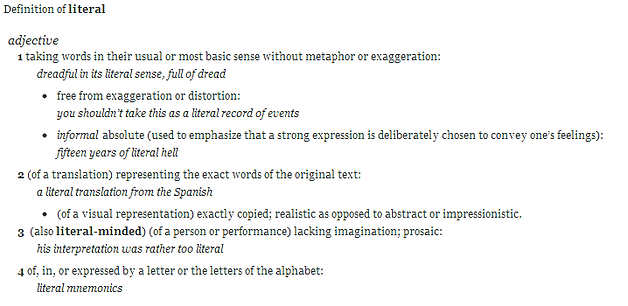Medducation: Language, Literature & Life

You know literal language. You use it every day of your life. When you mean EXACTLY what you say (or write) you are using literal language.
But it's never safe to take a basic explanation like this as 'fact'. You always need to double-check the meaning of terms like this by hitting at least one reliable source. In this case, I've used a Google Chrome App (Diigo) to capture the definition of 'literal' from the Oxford Dictionary (right). Oxford is the dictionary for English studies:
What is 'literal language'?:

While normally a comment like "it was written in stone" is actually an example of a metaphor (a type of 'figurative' language), things are
not always as they
seem. This cliché,
for example, can be
taken literally when
something has
actually been 'written
in stone', just like the
image on the right.
So finding literal
language is not always
easy. We need to make
sure we are constantly assessing what we are reading and hearing to make sure we fully understand whether figurative or literal language is being used.
In 2014 it became even harder to determine exactly what the word 'literal' means. Dictionaries began adapting their definitions (the 'denotation' of the word) to reflect how people were (mis)using the word 'literal' in everyday conversations.

It's now literally impossible to know what someone means by 'literal'
